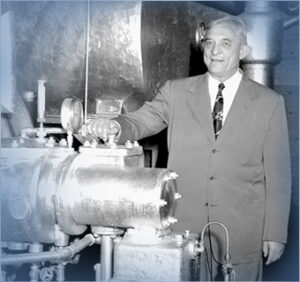Air conditioning has become an integral part of modern life, providing comfort and improving quality of life across the globe. This article delves into the fascinating history of air conditioning, exploring its invention, evolution, and the profound impact it has had on the world.
When Was Air Conditioning Invented?
The concept of air conditioning dates back to ancient civilizations, but the first modern air conditioning system was invented in the early 20th century. In 1902, Willis Haviland Carrier developed the first electrical air conditioning unit to address humidity problems in a printing plant in Brooklyn, New York. This innovation marked the birth of modern air conditioning as we know it today.
Who Invented Air Conditioning?
Willis Haviland Carrier, an American engineer, is credited with inventing the first modern air conditioning system. Carrier’s invention was initially designed to control the humidity in industrial settings, but its applications quickly expanded beyond factories. His work laid the foundation for the development of air conditioning technology and earned him the title of the “Father of Air Conditioning.”

When Did Air Conditioning Become Common?
Air conditioning became increasingly common in the mid-20th century. In the 1920s and 1930s, air conditioning began to be installed in public buildings such as movie theaters and department stores, making it more accessible to the general public. The post-World War II economic boom and advancements in technology further contributed to the widespread adoption of air conditioning in homes and businesses. By the 1970s, air conditioning had become a standard feature in many buildings across the United States and other developed countries.
How Air Conditioning Changed the World
Transforming Urban Living
Air conditioning revolutionized urban living by making it possible to live and work comfortably in hot and humid climates. This innovation facilitated the growth of cities in regions that were previously considered inhospitable, such as the American South and the Middle East.
Boosting Economic Productivity
The advent of air conditioning significantly boosted economic productivity. Comfortable working environments improved employee efficiency and reduced heat-related illnesses. This technological advancement also enabled the growth of industries that require controlled climates, such as computing and pharmaceuticals.
Enhancing Quality of Life
Air conditioning has greatly enhanced the quality of life by providing relief from extreme temperatures. It has made indoor spaces more comfortable and safer during heatwaves, particularly for vulnerable populations such as the elderly and those with health conditions.
Impact on Architecture and Design
The development of air conditioning has influenced architectural design, allowing for the construction of larger, more complex buildings with sealed windows. Skyscrapers and other modern architectural marvels are, in many ways, a product of air conditioning technology.
Conclusion
The invention and widespread adoption of air conditioning have had a profound impact on modern society. From transforming urban living and boosting economic productivity to enhancing quality of life and influencing architectural design, air conditioning continues to shape the way we live and work. Understanding its history helps us appreciate this vital technology that we often take for granted.








